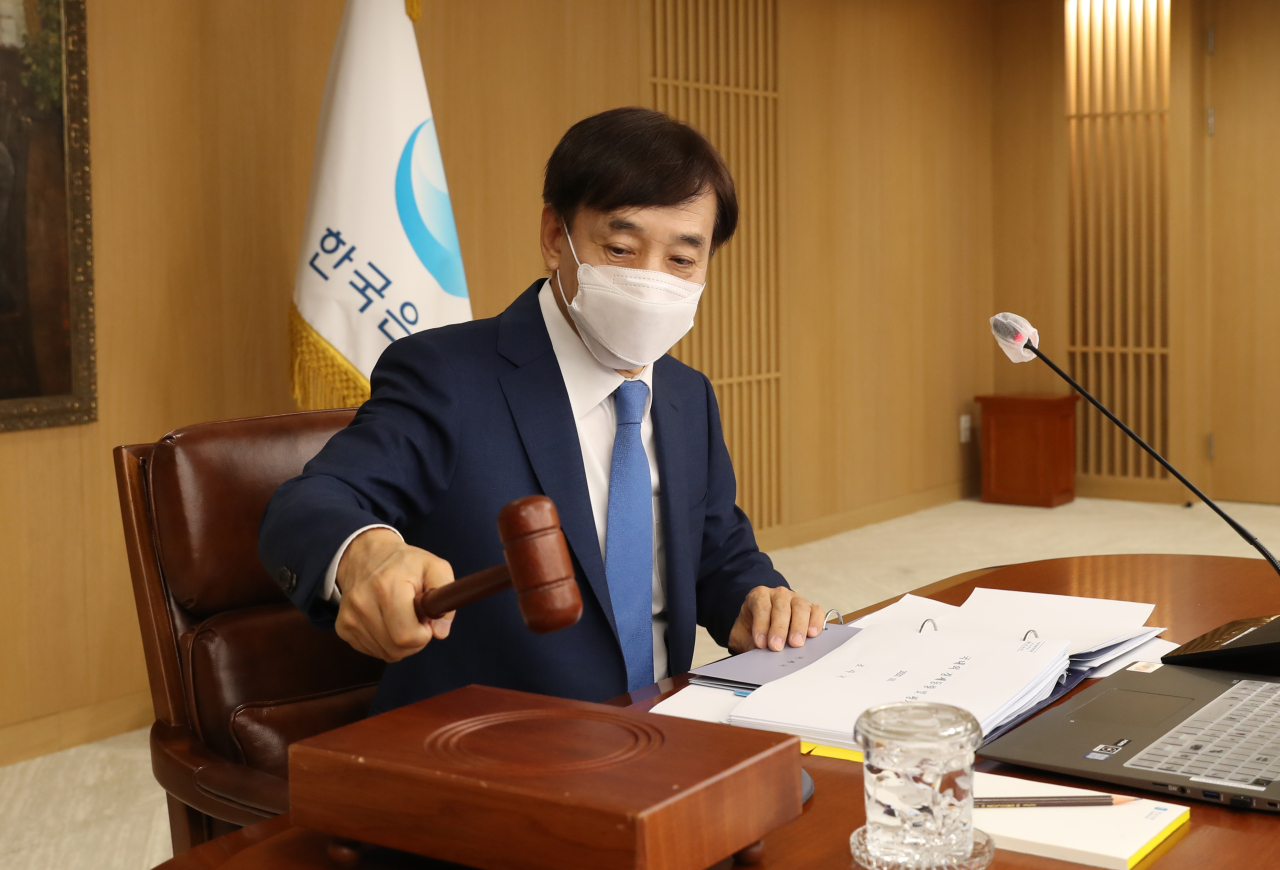 |
Bank of Korea Gov. Lee Ju-yeol chairs the bank's rate-setting meeting on Oct. 14, 2020. (BOK) |
South Korea’s central bank on Wednesday kept its benchmark interest rate anchored near 0.5 percent, hinting that it is treading cautious steps not to further aggravate the nation’s loan and housing markets, amid the coronavirus pandemic.
The Bank of Korea’s seven-member monetary policy board unanimously voted to hold the base rate at a record low rate, maintaining the decision it had made in late May. The board slashed the rate by a whopping 0.5 of a percentage point to 0.75 percent in mid-March, then by 0.25 to the current level May to combat coronavirus woes.
The board said in a statement that, “the nation’s economy is projected to show slow recovery mainly driven by exports, but there are still high uncertainties concerning its path of growth.”
“Household loans have been growing at a fast pace and housing prices in both metropolitan and rural areas have continued to surge,” it added.
Outstanding bank loans extended to local households came to 957.9 trillion won ($832.5 billion) as of end-September, up 9.6 trillion won from the previous month, BOK data released Tuesday showed. Banks‘ mortgage loans gained 6.7 trillion won on-month to 702.5 trillion won in September, jumping from a 6.1 trillion-won increase the previous month and marking the largest monthly gain in seven months.
The central bank cited a solid demand for home-backed lending, hinting that the nation’s housing market has yet to cool down despite a series of measures implemented by the government.
BOK Gov. Lee Ju-yeol told reporters in a press briefing on Wednesday that while the household loans were bound to see a certain amount of gain in combating the COVID-19 risks, “it is concerning to see the figure accelerate when Korea has already reached a high level.”
Lee warned that the loans could flow excessively into the nation’s asset market and cause additional financial imbalance in the market.
On the government’s fiscal policy management, Lee said that an “active management is inevitable under the current circumstances of crisis, but at the same time an effort to keep the national debt at a sustainable level for long-term is necessary.”
The nation’s snowballing national debt has been prompting concerns that it could strain its fiscal soundness, as the Moon Jae-in administration so far decided to draw up four extra budgets worth a combined 67 trillion won ($57.9 billion) this year to combat virus risks.
As of the end of August, national debt amounted to 794.1 trillion won and is projected to surge to 846.9 trillion won, when factoring in the four extra budgets. This would bring the national debt-to-gross domestic product ratio to 43.9 percent.
On the 2020 growth outlook, the BOK decided to maintain the 1.3 percent contraction, which it had revised down in August. It had said then that if the virus cases continue to flare-up into the fourth-quarter, the economy could even contract 2.2 percent this year.
South Korea’s economy contracted 3.2 percent in the second quarter from three months earlier after shrinking 1.3 percent on-quarter in the January-March period.
By Jung Min-kyung (
mkjung@heraldcorp.com)








